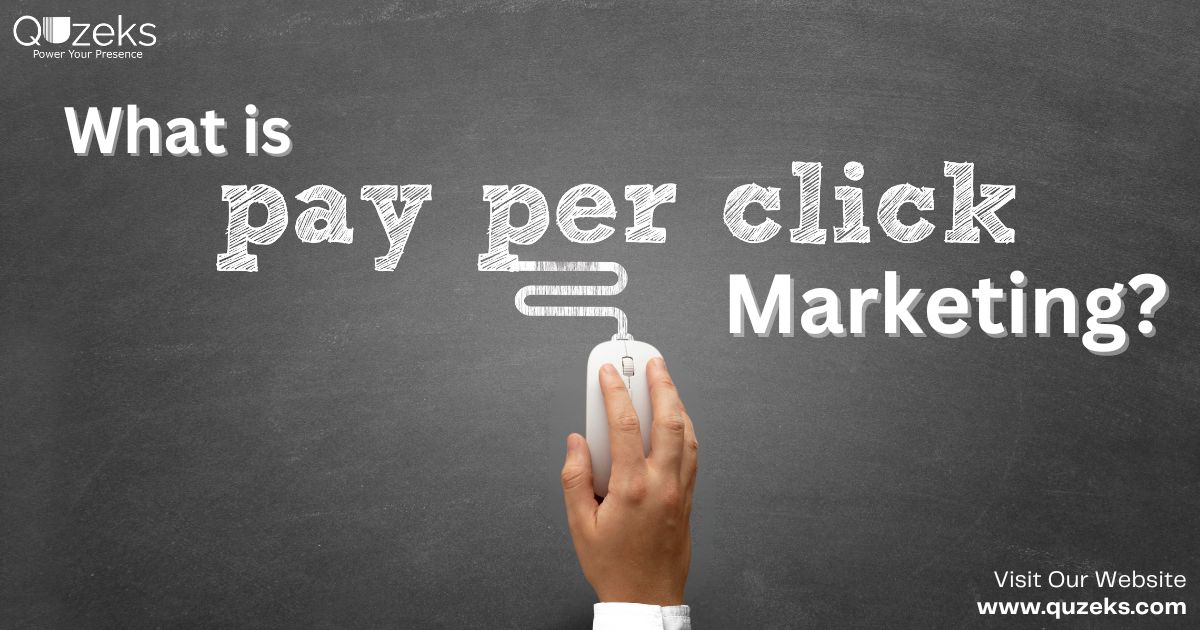In the current digital era, local SEO has become essential for companies hoping to succeed in their local marketplaces. Whether you’re a small business owner or part of a larger organization, optimizing your online presence to attract nearby customers is crucial. This guide will help you understand Local SEO and how to achieve higher rankings to drive more traffic and conversions.
What is Local SEO?
Increasing your website’s visibility in local search results is called local search engine optimization or SEO. These searches often include phrases like “SEO company near me” or “best coffee shop near me.” For businesses that depend on local customers, appearing at the top of these results is a game-changer.
Employing local SEO tactics enables companies to:
-
- Attract more local customers.
-
- Enhance brand visibility.
-
- Outperform competitors in the local market.
Read More: What is SEO in Digital Marketing
Why Local SEO Matters
The competition for local search visibility is fierce, and businesses prioritizing Local SEO can gain a significant advantage. Here’s why Local SEO is essential:
1. Increased Visibility: By ranking higher in local search results, potential customers can easily find your business.
2. Better Targeting: Local SEO ensures your marketing efforts are focused on the most relevant audience.
3. Improved Credibility: Appearing in top results builds trust and authority for your brand.
4. More Foot Traffic: Optimizing for local searches can significantly increase the number of visitors to your physical location.
For businesses seeking professional assistance, partnering with the best SEO companies can provide the expertise needed to navigate these complexities.
Key Components of Local SEO
Here are the most important factors to focus on for successful Local SEO:
1. Google My Business Optimization
Local clients use your Google My Business (GMB) page as their online shopfront. It’s often the first impression potential customers have of your business, making a well-optimized profile essential for engaging them effectively.
To optimize your GMB profile, you must first claim and validate your company. Whether creating a new listing or claiming an existing one, the verification process is straightforward, and Google provides clear guidance to help you complete it.
Verify that all details on your GMB profile are up-to-date and accurate. Include your business name, services, address, contact details, operating hours, and website link. High-quality images and videos showcasing your business can significantly enhance your profile’s appeal, so include them.
Keep your profile fresh by posting regular updates. Share information about new offers, events, or any changes in your business. In addition to keeping your audience interested, consistent action raises your profile in local search results.
Following these steps, you can create a GMB profile that stands out, attracts local customers, and drives engagement.
2. Local Keyword Research
Local keywords are essential for crafting content that effectively targets nearby customers. Without them, your content may struggle to connect with your intended audience.
Including keyword phrases like “near me” or “near [your area]” helps your content align with local search intent. These terms are highly effective in improving your visibility on local search engine results pages (SERPs) and connecting with nearby customers.
Incorporate local keywords into your content to ensure they resonate with your audience’s needs and search habits. Your company’s reputation is increased by speaking in a language your local clients can relate to and trust.
Leverage tools like Google Keyword Planner and SEMrush to discover relevant local keywords for your content. Regularly analyze the performance of these keywords and update them as needed to maintain your competitive edge in local searches.
Integrating local keywords into your content strategy improves your reach and ensures your business stays relevant in local conversations, helping you build stronger connections with your community.
3. High-Quality Local Citations
Local citations refer to mentions of your business’s name, phone number, or address on relevant websites, while local links are backlinks from other local businesses’ websites to yours. Both are crucial for establishing your brand’s authority and relevance within the local community.
Local links and citations boost your brand’s credibility, signaling to search engines that your business is trustworthy and well-connected. This enhances your website’s ranking, as search engine algorithms prioritize brands with strong local authority.
Here are effective strategies to create local links and citations:
-
- List Your Business on Local Directories: Register on popular local directories to increase visibility and credibility.
-
- Get Featured in Local Blogs and News: Collaborate with local bloggers and journalists to highlight your business.
-
- Sponsor Local Online Events: Partner with local events to gain exposure and backlinks.
These efforts enhance your presence in the community while strengthening your local SEO strategy, helping your business connect with the right audience and achieve higher search rankings.
4. Online Reviews and Ratings
Motivate pleased clients to post gratifying evaluations on websites like Google and Yelp. Good reviews affect local rankings and enhance your reputation.
5. Mobile Optimization
Many local searches are conducted on mobile devices, so having a responsive and mobile-friendly website is essential.
6. Backlinks from Local Websites
Partner with local businesses, organizations, or blogs to gain high-quality backlinks that boost your authority and visibility in the local search landscape.
7. Social Media Engagement
Regarding daily active users, social media platforms far surpass websites and other channels. Social media impacts everything in today’s digital environment, including local SEO.
Social media platforms are incredibly effective for promoting and growing your business. With a strong local audience presence on platforms like Instagram, Facebook, WhatsApp, and others, social media offers unparalleled opportunities to connect with your community.
Businesses can significantly boost their visibility and influence by engaging with local audiences through social media pages, community groups, and interactive forums.
Building a strong presence on social media can transform your business. To achieve this, focus on creating content tailored to each platform. Highlight local events, trending topics, and community discussions to engage your audience effectively.
Leveraging the reach and engagement of social media platforms helps businesses strengthen their local SEO strategy and establish meaningful connections within their communities.
Partnering with the Best SEO Companies
If you’re new to Local SEO or need help enhancing your strategies, working with the best SEO companies can make all the difference. These experts can:
-
- Conduct detailed keyword research to optimize your content.
-
- Put advanced tactics into practice that are suited to your company’s objectives.
-
- Monitor results and make campaign adjustments for optimal return on investment.
Searching for an “SEO company near me” is a great way to find local experts who understand the nuances of your target market.
Measuring Local SEO Success
To ensure your efforts are yielding results, keep an eye on these key performance indicators:
-
- Search Rankings: Monitor your position in local search results for your targeted keywords.
-
- Website Traffic: Analyze the increase in local traffic to your website.
-
- Conversion Rates: Monitor the number of visitors who become customers using conversion rates.
-
- Customer Engagement: Measure the interactions on your GMB profile and social media platforms.
Reviewing these metrics will help refine your strategy and maintain a strong local presence.
Conclusion
Mastering Local SEO is essential for businesses aiming to dominate their local markets. By optimizing your Google My Business profile, targeting relevant local keywords, and focusing on online reviews and citations, you can significantly boost your visibility and drive more traffic.
If you’re looking for professional guidance, consider partnering with an SEO company near me or the best SEO companies to maximize your local SEO potential. With the right approach and consistent efforts, your business can thrive in local search results and connect with its ideal audience.
Reference:
-
Google. (2024). Improve your local ranking on Google. Retrieved from www.support.google.com/business/answer/7091
-
Moz. (2024). The Essential Guide to Local SEO. Retrieved from www.moz.com/learn/seo/local
- Optimize your Google My Business (GMB) profile with accurate business details, images, and reviews.
- Use local keywords in your website content, meta descriptions, and headings.
- Get listed in local directories like Yelp, Bing Places, and industry-specific listings.
- Encourage customer reviews and respond to them promptly.
- Ensure NAP (Name, Address, Phone Number) consistency across all online platforms.
- Focus on local backlinks from reputable sources to improve credibility.
- Optimize your website for mobile users, as most local searches happen on mobile devices.
A Local Guide in SEO refers to a Google program where users contribute reviews, photos, and information about local businesses on Google Maps. These contributions help improve local search rankings by providing authentic user-generated content and enhancing business visibility and trustworthiness.
- Google My Business (GMB) Optimization – GMB is crucial for local search visibility and helps businesses appear in Google’s local pack and maps.
- NAP Consistency – Ensuring that the business Name, Address, and Phone Number are the same across all directories and listings helps Google verify and rank your business correctly.
- Local Keyword Optimization – Using relevant local keywords improves your website’s relevance for local searches.
- Customer Reviews & Ratings – Positive reviews build trust and improve rankings, as search engines consider them a ranking factor.
- Local Link Building – Backlinks from local businesses, blogs, and directories boost your site’s credibility and domain authority.
- Claiming and optimizing your Google My Business profile to appear in local searches.
- Using localized content and keywords to match user intent.
- Building local citations on directories like Yelp, Yellow Pages, and industry-specific sites.
- Getting high-quality local backlinks from trusted sources.
- Encouraging customer reviews and actively engaging with them.
- Ensuring mobile-friendliness since most local searches happen on mobile devices.
- Using structured data markup (schema.org) to help search engines understand your business better.



